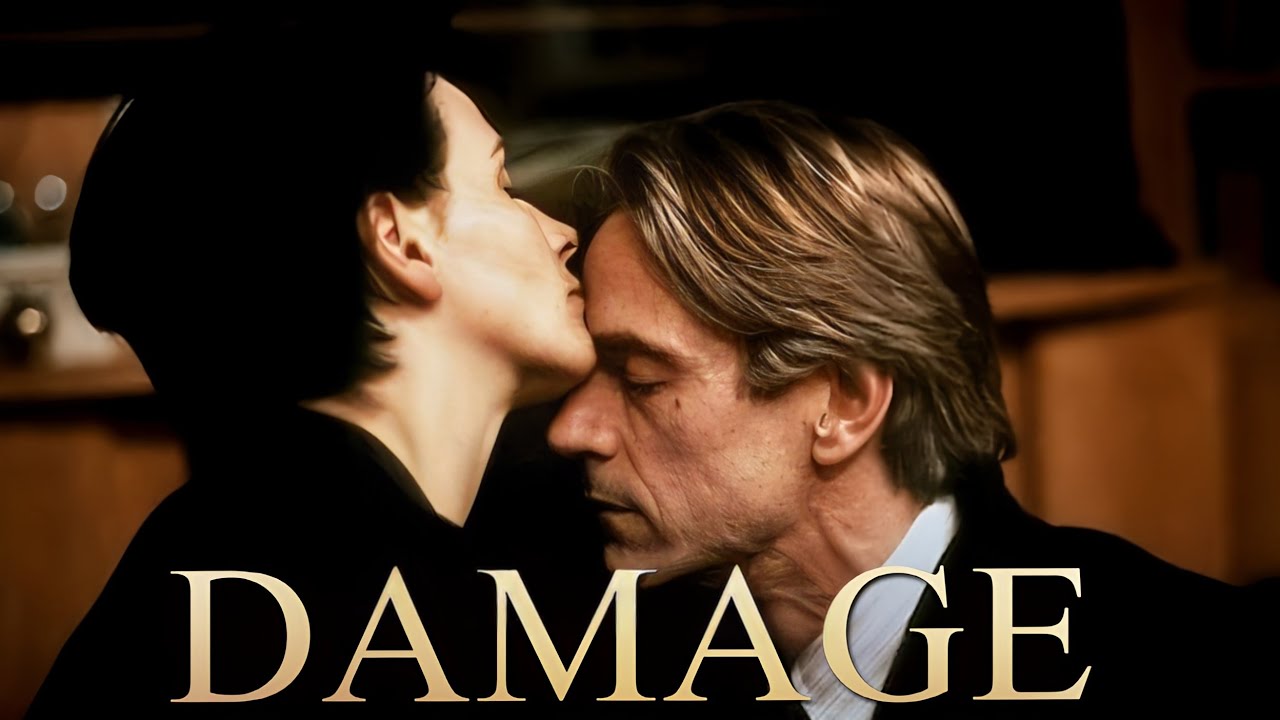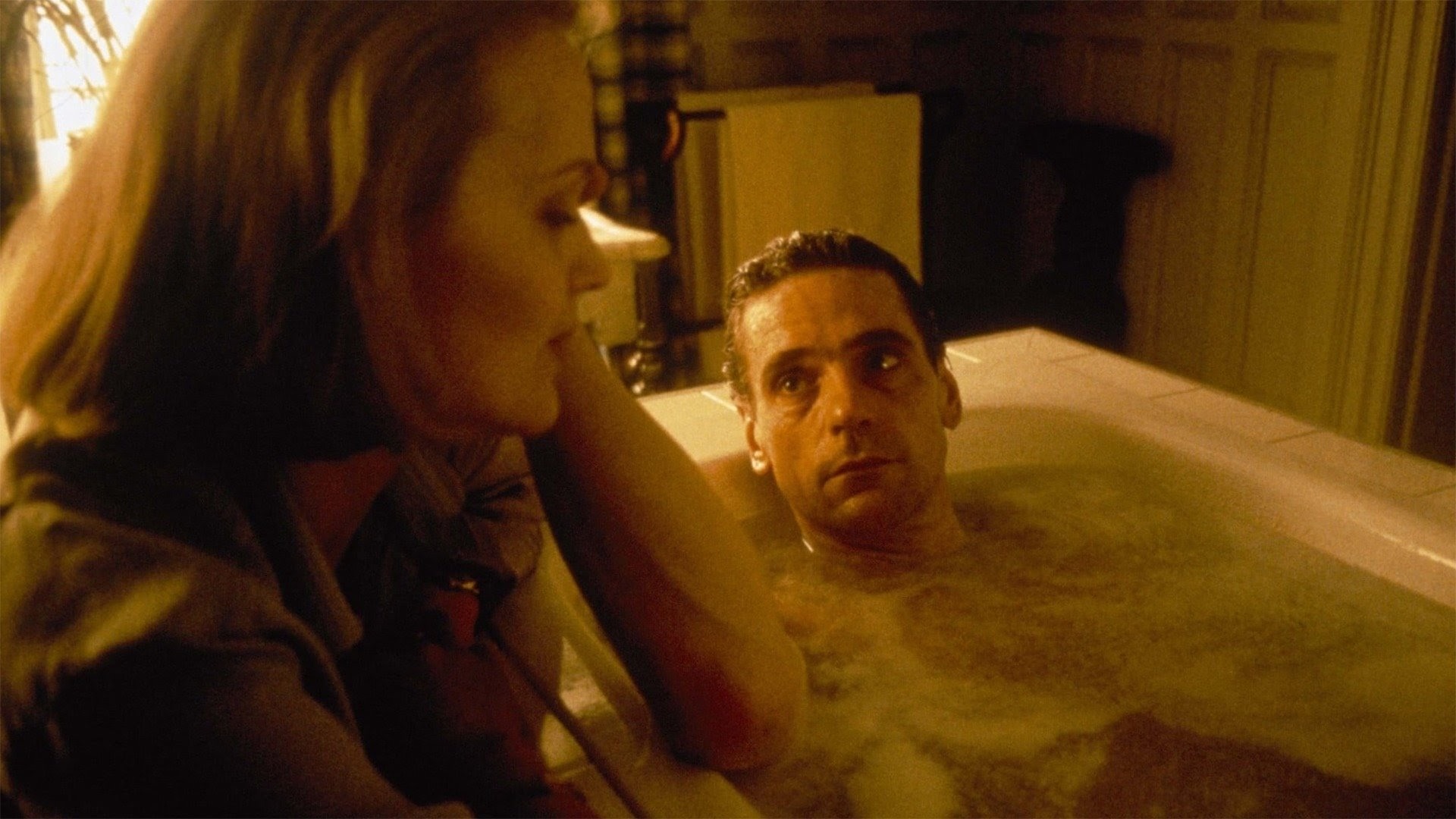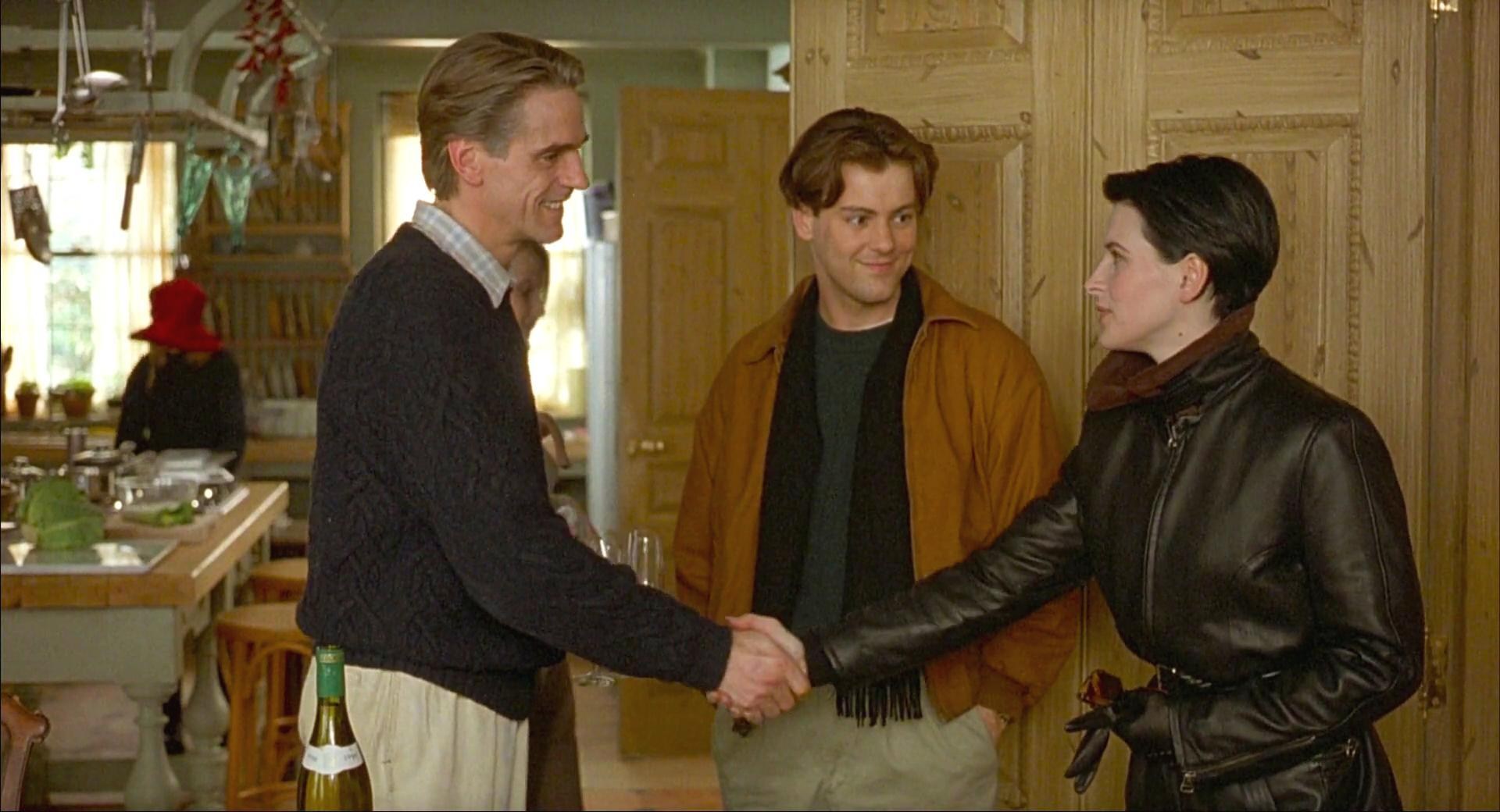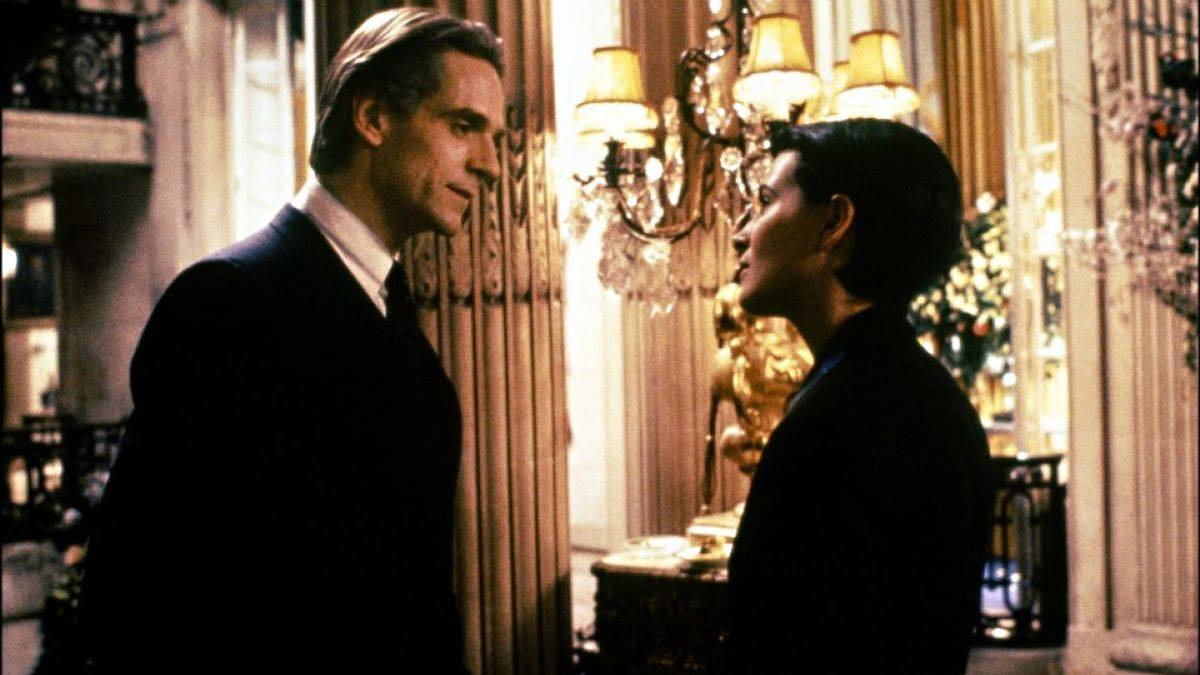Damage (1992)

“Damage” (1992) is a psychological drama film directed by Louis Malle, known for its intense exploration of passion, obsession, and the complexities of human relationships. The film features an outstanding cast, including Jeremy Irons, Juliette Binoche, Miranda Richardson, Rupert Graves, and Ian Bannen. Based on Josephine Hart’s novel of the same name, “Damage” is a haunting tale of forbidden love and its devastating consequences, set against the backdrop of political and social tensions.
The film revolves around Dr. Stephen Fleming (Jeremy Irons), a British politician in his mid-40s, who finds himself caught in a dangerous affair with his son’s fiancée, Anna (Juliette Binoche). The affair begins innocently but quickly escalates into an all-consuming obsession. As Stephen becomes more deeply involved with Anna, his life begins to unravel, impacting his relationships with his wife, Ingrid (Miranda Richardson), and his son, Martyn (Rupert Graves). The film examines the destructive nature of forbidden passion and the blurred lines between love and obsession.
In “Damage,” the characters are portrayed with profound emotional depth and complexity. Stephen Fleming, played by Jeremy Irons, starts as a reserved and morally responsible man, but his affair with Anna forces him to confront his inner desires and darker impulses. Anna, played by Juliette Binoche, is enigmatic and passionate, yet she is also a symbol of entrapment in a world of emotional chaos. The interactions between the characters expose the fragile nature of their relationships, and their actions lead to irreversible consequences. The film portrays their psychological breakdowns with sensitivity and realism.

A central theme in “Damage” is the destructive power of desire and obsession. The film presents the affair between Stephen and Anna as a force that transcends reason, morality, and the consequences of their actions. Their passion for each other becomes all-consuming, overshadowing everything else in their lives. The narrative explores how sexual desire can entrap individuals, leading them to make decisions that are ultimately self-destructive. The film asks whether love is truly a liberating force or if it is inherently dangerous and suffocating.

“Damage” is visually stunning, with cinematography that amplifies the emotional intensity of the story. The film’s intimate and often stark visuals create a sense of unease and tension, reflecting the psychological turmoil of the characters. The use of muted colors and dim lighting contributes to the film’s somber and oppressive atmosphere. Louis Malle’s direction is careful and deliberate, allowing the characters’ emotions to unfold gradually, building tension with each scene. The film’s pacing and attention to detail enhance the sense of inevitability, as if the characters’ fates are already sealed from the moment they succumb to their desires.

“Damage” is a powerful exploration of forbidden love, obsession, and the unraveling of personal integrity. With its strong performances, particularly by Jeremy Irons and Juliette Binoche, the film captures the complexities of human emotion and the devastating consequences of crossing moral boundaries. Louis Malle’s direction and the film’s haunting atmosphere leave a lasting impression, making it a compelling study of the darker aspects of the human psyche. “Damage” is a gripping and provocative film that continues to resonate with viewers long after the credits roll.











